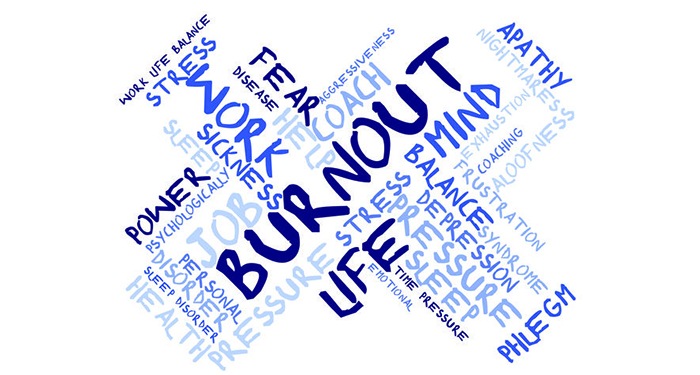
GLINT, a research and innovation organization whose mission is “to help people become happier and more successful at work,” published its “State of the Manager 2021” survey results. The most disturbing piece of data was the fact burnout in the workplace rose 78% from Q1 to Q4 in 2020. I am sure no one is surprised and believe things have not gotten better. How many are still concerned? Are you?
The Symptoms for Workplace Burnout Are Many
- Alienation from work and a change in attitude towards work, the workplace, and its members.
- Physical changes and problems such as fatigue, trouble sleeping, gaining or losing weight, getting sick more often, and headaches.
- Emotional exhaustion. Difficulty regulating emotions such as anger, frustration, sadness, and fear.
- Performance and quality changes. How much gets done and how good is the job?
Thinking back, what issues were new because of COVID? What were exaggerated due to the pandemic? And, what became the biggest cause of burnout in managers?
Challenges Related to Manager Workplace Burnout
Managing and Working Remotely: For most of us this was a rapid learning process and very new change. The workload is crushing. Suddenly you are away from your team. No casual encounters of a work or personal nature. Cross-collaboration is complicated. Support people and services are distant. The skills and equipment needed by your employees varied considerably with even the most tech savvy having to share internet service and laptops with family and friends. According to the GLINT survey, the number of meetings increased by 48%. The demand for off-hour involvement soared with managers working late into the night, then up early in the morning, to get the work done.
Dealing with Trauma and Loss: It would be hard to find someone who did not have a type of trauma or loss situation. Whether it was the passing of a loved one, the fear of getting sick, unemployment, financial stresses, or a cadre of other challenging situations, it was the manager who was more aware and expected to intervene using the emotional intelligence they may or may not have. If they could not change something, they were supposed to listen.
For many dedicated mangers burnout occurred when they helped others rather than themselves. I think of the New York City school’s Chancellor who unexpectedly quit his job running the largest school population in the country at a terrible time because he “needed to deal with his grief.” The man had lost 11 family members and friends and held it together until he no longer could. He burned out. There are millions of these stories.
Continuing to Learn and Grow: Of course, there was much to learn from the demands in the workplace during a pandemic but in many instances those obligations denied managers the time and energy to learn new skills and information, practice and share development with others, and advance their careers. It is well documented the number one reason talented people leave their employer is lack of growth and potential advancement. The pandemic put increased demands on managers to address immediate and long-term issues simultaneously often contributing to their burnout.
Conflict Between Home and Work: We have all been in Zoom meetings where a four-year-old is sitting on their parent’s lap or the dog was barking for attention. It became a Sophie’s Choice — do I help my floundering child with their homework project or respond to the emails from needy team members? This level of personal conflict leads to burnout. There is no good decision and of course there is no room for self-care.
Speaking of Self-Care: It is often overlooked by managers, be it down-time, personal hygiene, nourishment, sleep, or a numerous group of other things required for burnout prevention. In coaching we talk with clients about “extreme-self-care.” It works on the belief that you cannot help others until you have taken care of yourself. Many managers fail to do so and therefore set themselves up for burnout. Like most other important activities, it must be scheduled to happen consistently.
Responsibility and Acknowledgement: What needs to be done and a recognition of who is going to make it happen are two areas that working remotely has revealed. Too many new or unclear needs became obvious. “Who’s in charge and how do we measure the success?” was asked but generally not answered.
Because the demand continues to be so great, acknowledging effort, dedication, ingenuity, and loyalty is observed but not necessarily expressed. This is often experienced by managers with their bosses. The manager is regularly communicating with his/her staff and being clear about priorities, though the manager hears little, if anything, from their leader and praise is rarely given.
Success-driven people, regardless of how independent and self-supporting they made be, need guidance and acknowledgement. Without it, they are at risk of self-doubt, resentment, and disengagement (all contributors to burnout).
Burnout is Serious: It causes health problems, both physical and mental. It can turn a valued employee into a disgruntled complainer. It makes many consider leaving or moving to another division. It has signs and symptoms and can be addressed. It’s a matter of self-care and leadership on the part of others.
Leave a Reply